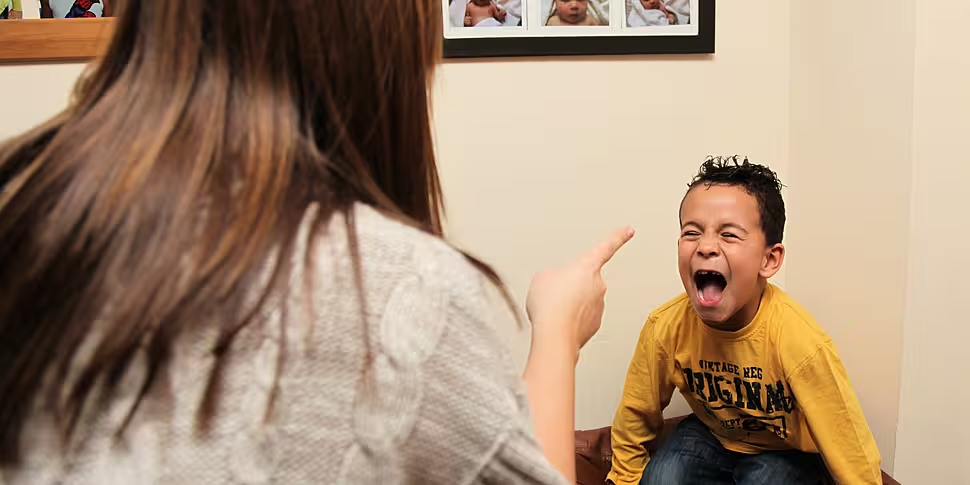On this week's 'Parenting' segment on the Moncrieff show, one listener sought advice about her three-year-old's tantrums.
Joanna Fortune, psychotherapist specialising in Child & Adult Psychotherapy, joined Moncrieff to answer this and other listeners' questions.
The question:
“My 3 and a half year old is having quite regular tantrums. The seemingly smallest thing can set him off and he starts screaming or grunting.
“Sometimes he throws himself on the floor, sometimes he hurts himself by pulling at body parts or kicking things or he might knock things over. I’m wondering if this is still in normal territory in terms of toddler behaviour. It can last anything from a couple of minutes to 20-30 minutes on a bad day.
“It’s hard to know how to respond as it’s often impossible to get through to him in the moment. I also have a 6 year old and a 7 month old. We try distraction with the three and a half year old but it seems to aggravate him even more sometimes. I will walk away and come back to him at intervals and let him know I’m here when he is ready. It generally will pass, then once we somehow manage to connect he comes out of it.
“We talk to him about it and say we can’t understand grunting and can he use his words to help us. Sometimes we genuinely don’t know what has happened eg we could have moved something he didn’t want us to move, or closed a door he wanted left open.”
Listen and subscribe to Moncrieff on Apple Podcasts, Google Podcasts or Spotify.
Joanna’s advice:
“The bad news is - this is perfectly normal and I really mean that because it would be great for me to go, ‘Oh, it’s this issue and you can fix that and this won’t happen again’. But we talk about the Terrible Twos as the tantrum time and it creates this false illusion that once they’re three it’ll stop, that’s not how it works.
“So this does sound, while deeply unpleasant for all of you, it does sound normal… We have to think about it from the perspective of a three year old; young children have so little control over their world and their lives.
“They’re dependent on adults to do everything for them and they have to do as they’re told.
“Being small in a big world can mean that what can seem small to us grown ups, can be anything but small when you’re three.
“You moving that thing, you not closing that door… that can be massive to [a three-year-old] and really dysregulating.”
Joanna continued:
“One thing I’m going to say to this parent, is your words and your attempt at reasoning with him - that’s like shouting into the wind. That’s not going to land because when he’s in the tantrum… that part of his brain that can be reached by words and reasoning… that’s not online.
“What you’ve got to do is do it for him because when you’re saying, ‘We can’t understand grunting, can you use your words?’ He actually can’t do that for you.
“So one of the things I would say, when we’re trying to beseech our children to be calm, you know in the history of being dysregulated, the words ‘Calm down’, do not calm anyone down… instead we have to be the calm that co-regulates them.
“So that we’re setting the temperature which is very easy for me to say and very hard to do in the moment with a screaming, thrashing child.
“But we have to stay at least calmer than that tantrum and I see that you’re checking in on him, you’re moving away.
“When you move away, make sure you say to him, ‘I’m just going to step outside and I’ll check on you in a minute,’ so that he doesn’t feel that you’re abandoning him or leaving him. But you’re coming in, checking in, keep repeating that and afterwards when it has calmed down… that you do the meaning making of the behaviour for him because he’s too young.
“So you say, ‘I think what happened there was you got really frustrated and your frustrated feelings got really loud and big and you shouted them out and then your body got frustrated and it started kicking and it kicked the floor and I wonder are there different ways that we can show frustration? We could stamp our feet, we could wiggle our feet’... Give him two to three alternatives when he’s calm.”
Joanna concluded:
“These are small things because this is largely developmentally normal and we don’t psychopathologize normal behaviour… It will pass!”
Main image: A mother tells off her child.









